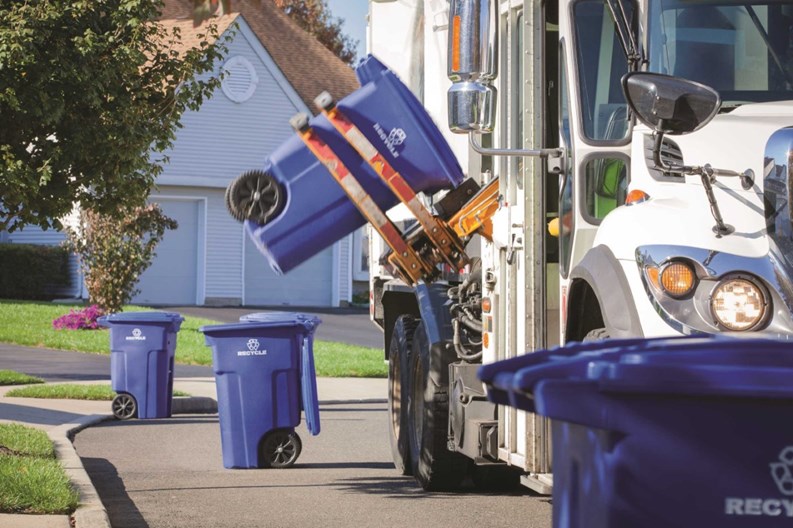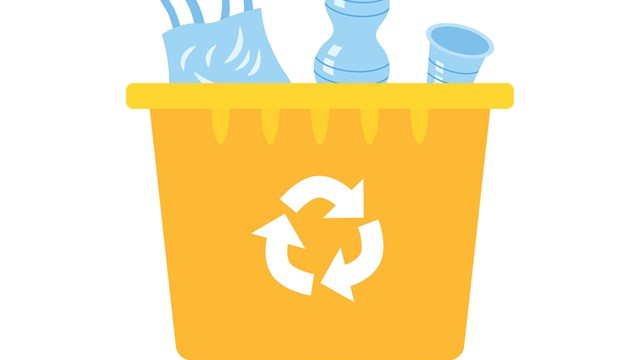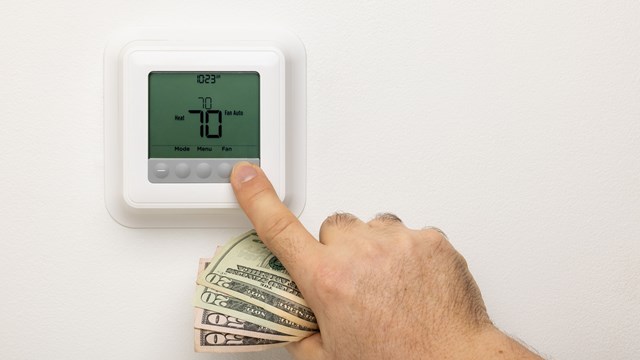New Jersey is trashy. Literally. Every day residents of the Garden State produce hundreds of tons of trash. Whether its’ paper plates, cups, napkins or E-waste such as discarded computers, office electronic equipment, entertainment systems or mobile phones.
Once all that garbage is carted away from driveways, curbs and stoops, most people don’t give it much further thought. It has to go somewhere, however—and most often, it goes to landfills, transfer stations, and treatment plants throughout the Garden State, or onto trains and barges and sent even farther afield.
It is incredibly important to know where your building’s garbage and recycling is going and to educate yourself about new waste and recycling practices. After all, a landfill or processing center could be proposed to open near your neck of the woods—and landfills are one of the most potent contributors to global warming, responsible for 36 percent of all methane emissions in the United States. Or, perhaps a recycling hub could start in your own building community’s basement. Or maybe you’ve got an electronics recycling box in your basement already (most big HOAs already do). You should know about it.
Garden State Garbage
Waste management is a crucial issue for New Jersey because it is the nation’s most densely populated state with 8,867,749 residents. Predictions put the waste level at 33 million tons in 2015 if the state continues forward without further reducing the waste stream or increasing levels of recycling.
“All garbage in New Jersey is handled on a county basis. All 21 counties in New Jersey develop their own countywide disposal master plan that has to be approved by the state,” says Lawrence Ragonese, press director for the New Jersey Department of Environmental Protection (NJDEP). “So the counties may have their own landfill, or it could be that they have their own transfer stations to collect trash and dispose of it elsewhere. Some counties have incinerators in county, or they may send the waste to incinerators in other counties, while some counties send their trash to out-of-state landfills. So there is a mix of disposal options. There are 21 counties and 21 different plans, so there is no central location for our garbage, or state processing centers. There are transfer stations, there are incinerators, and there are recycling/separation facilities located throughout the state.”
In Bergen County, the Bergen County Utilities Authority (BCUA) oversees the implementation of the county plan for waste management.
“Bergen County has 70 different municipalities. Each municipality is responsible for contracting for the disposal of their own waste. There is no central agency that is responsible for that,” says Richard Wierer, deputy executive director of solid waste for the BCUA in Little Ferry. “So each municipality goes out to bid for collection for disposal and then the waste either goes to a transfer station first, then to a disposal facility, which is either a landfill or a resource recovery facility.”
“Solid waste in Bergen County goes to multiple places,” adds Joe Burke, sales director for The Action Environmental Group in Newark. “It’s most economical to take it to a transfer station, because it’s closer and from a transfer station it goes to one of numerous landfills. Landfills are located all over, Pennsylvania, Ohio—even Kentucky.”
Not in My Backyard
While most everyone is happy to get their garbage off their hands, they tend to be less enthused about having those aforementioned landfills, transfer stations, or treatment facilities anywhere near their homes or communities due to environmental and economic concerns.
“If garbage facilities are not properly cared for or do not follow guidelines, there can be odor issues, rodent issues and in some places there are problems with birds and seagulls,” says Ragonese. “But by following proper environmental guidelines, you would not have those problems—though there could be an odor. We work very hard to make sure that permit requirements are fulfilled.”
“I would say that facilities, especially in New Jersey, are heavily regulated, and the permitting process is intense,” says Wierer. “All the environmental impacts are usually taken into consideration prior to any permit being issued through the planning process and through the permitting process at the state level. It’s a lengthy process which includes public hearings and comments. There are plenty of opportunities for the public to comment on the proposed facilities, and there are stringent regulations on how those facilities can operate.”
New Technologies
As expected, recycling is big in the Garden State. In New Jersey, all residents and businesses are required to recycle by law. The mandatory recyclable items are determined by each individual county's legislation, as well as several statewide laws.
The primary way for co-op, condo and HOA residents to recycle is through the local municipal curbside recycling collection (the collection of recyclable materials picked up from the curb outside your home), run by either the county or the town where you live.
There are a number of newer more advanced methods of recycling that’s taking place throughout New Jersey. “The newer, uncharted territory is in food waste,” says Wierer. “New Jersey, specifically Bergen County, does a very good job in recycling traditional recyclables like cans, newspaper and corrugated paper. We’ve done a very good job of doing that.
“The next hurdle,” he says, “is food waste recycling, because that is a large portion of waste that is being thrown out at the residential and commercial level. There are a lot of new technologies out there. There’s anaerobic digestion, which is basically taking food waste and composting it which means without oxygen. What it does is it create a methane, or a bio-gas which could be used for cogeneration facilities to create electricity. That’s probably the latest and greatest of the new technologies that are available.”
“Here in New Jersey we are working really hard on recycling,” says Ragonese. “We have many new mechanized source separation plants that will literally take trash and the trash is sorted out and the recyclables are pulled aside to try to get the least amount of trash into the system and pull out as many recyclables as we can. Those are done by machine. The larger pieces can be done on a tipping floor by hand but there’s a great effort to enhance and increase recycling by separating. There are new mechanized plants. We’re the most densely populated state in the nation, so siting landfills, siting incinerators, siting transfer stations—anything to do with solid waste disposal is difficult, because it generally impacts people. We’re not Montana where you might have 16,000 miles separating a neighbor, so it’s always a difficult task to do. It takes a lot of work and effort and assurances to the public.”
e-Waste
In the past, Garden Staters may have been at something of a loss when it comes to how best to dispose of old laptops, tablets, and other types of electronic, or 'e-waste' – but that’s changed.
As of January 2011, it became illegal to discard computers, monitors, televisions and laptops in the general trash. All businesses and households throughout New Jersey must arrange for these items to be recycled. According to experts, recycling electronic equipment keeps harmful materials out of New Jersey’s waste stream and the environment. In fact, electronics often contain lead, mercury and other hazardous materials, and in fact, make up the largest and fastest growing component of the hazardous materials entering our waste stream. For additional information, log onto www.recyclingnj.com.
Regardless of whether you live in a densely urban condo building, a townhome community, or a sprawling suburban HOA, properly disposing of your household's trash—and knowing what happens to it once you've tossed it away—is key to taking responsibility for your home, your community, and the environment, in general.
Danielle Braff is a freelance writer and a frequent contributor to The New Jersey Cooperator. Staff writer Christy Smith-Sloman contributed to this article.







Leave a Comment